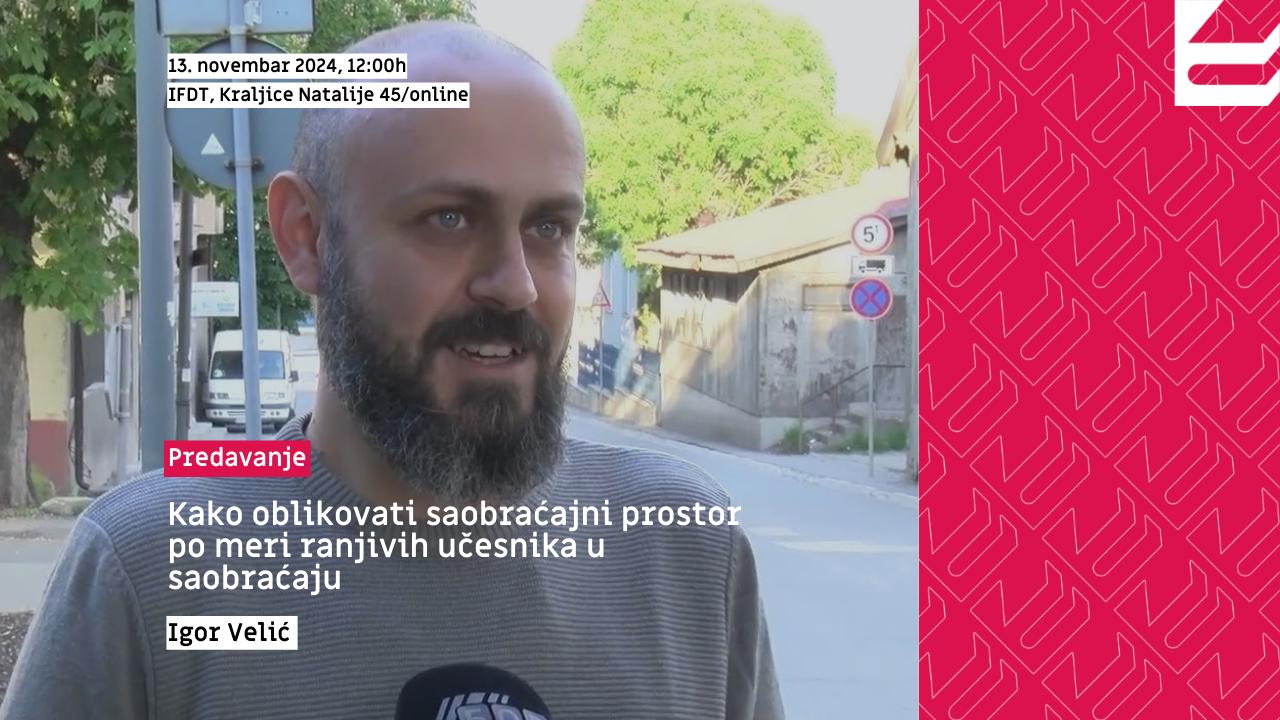
[Lecture] Designing Traffic Spaces to Accommodate Vulnerable Road Users (SolidCareLab & PerspectLab)
Equality in shaping traffic space is viewed through the modern framework of sustainable urban mobility and humane engineering, with a particular focus on applying information technologies in traffic regulation. Designing traffic spaces that cater to vulnerable participants, such as pedestrians, cyclists, children, the elderly, and people with disabilities, presents a key challenge in contemporary urban planning and traffic policy. This group of participants is frequently exposed to an increased risk of injury or fatality in traffic accidents. Ensuring their safety requires a holistic approach encompassing technical, infrastructural, and legislative measures. The key principles of this approach include reducing motor vehicle speeds, expanding zones that prioritize pedestrians and cyclists, improving lighting and signaling, and applying modern technologies for monitoring and control. Integrating traffic planning with socially responsible urban design solutions can significantly reduce the number of accidents and improve the quality of life in urban environments.
Igor Velić is a master’s degree transportation engineer and the editor of the “Safe Paths” portal, dedicated to road safety. He is also a collaborator with the Institute for Urban Mobility. His vision is to create unpolluted and uncongested urban environments that will improve the quality of life for all citizens. He advocates for the development of attractive cities in Serbia that are accessible, comfortable to live in, and pedestrian-friendly. He actively collaborates with the Association of Parents of Children Killed in Traffic Accidents and has significant experience working on projects jointly implemented by the public and civil sectors.
